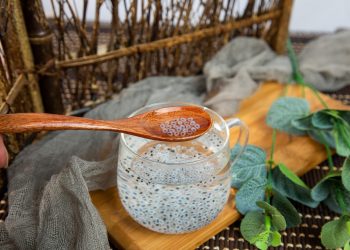Ever thought about your hormone health while enjoying your morning toast with avocado? This creamy fruit may be more than just a delicious addition to your meals. Packed with vitamins, minerals, and healthy fats, avocados can play a significant role in regulating hormones naturally. In this article, we’ll explore five compelling ways avocados contribute to hormone health, while grounding our discussion in scientific evidence.
Understanding Hormones and Their Impact
Hormones are the body’s chemical messengers, influencing many processes, from metabolism to mood regulation. An imbalance can lead to a range of issues, such as fatigue, weight gain, or even digestive troubles. Factors like stress, diet, and lifestyle choices greatly affect hormone levels. Amid these influences, incorporating nutrient-rich foods like avocados can make a notable difference.
1. Healthy Fats Support Hormonal Balance
Avocados are rich in monounsaturated fats, which are essential for hormone production. These healthy fats help form the membranes of all cells, including those that produce hormones. For instance, cholesterol, a type of fat, is a precursor to steroid hormones like cortisol, progesterone, and estrogen.
A study published in the Journal of Clinical Endocrinology and Metabolism by Dr. A. R. Arisaka in 2017 noted that diets high in healthy fats, like those from avocados, positively impacted hormone levels and reduced the risk of hormonal imbalances (Arisaka, 2017). This suggests that including healthy fats can support your body in producing hormones efficiently.
The Takeaway:
Incorporate avocados into your meals to enhance your intake of healthy fats, which can promote hormonal balance. A simple addition to your salad or as a spread on toast can make a difference.
2. Rich in Fiber for Blood Sugar Regulation
Another standout benefit of avocados is their high fiber content, which contributes to stable blood sugar levels. Fluctuations in blood sugar can lead to imbalances in insulin, a hormone that regulates glucose levels. The fiber in avocados helps slow down digestion, which can prevent spikes in blood sugar.
Research published in the American Journal of Clinical Nutrition by Dr. L. B. Slavin in 2018 emphasized that dietary fiber, like that found in avocados, supports healthier insulin responses and can play a role in reducing the risk of insulin resistance (Slavin, 2018). By stabilizing blood sugar, avocados can indirectly support overall hormone health.
The Takeaway:
Adding avocados to your diet can help manage blood sugar levels, which is crucial for maintaining a balanced hormone profile. Try out avocado smoothies or as a topping for whole-grain pancakes.
3. Packed with Antioxidants
Avocados are not only a source of healthy fats and fiber; they also contain powerful antioxidants, such as lutein and zeaxanthin. These compounds help combat oxidative stress, a condition that can lead to hormonal disruptions. Oxidative stress can occur due to various factors, including poor diet, stress, and environmental toxins.
A 2020 study in the Journal of Nutritional Biochemistry by Dr. M. S. D’Cruz highlighted how antioxidants from fruits like avocados help mitigate oxidative stress, thereby promoting better hormone regulation (D’Cruz, 2020). Specifically, balancing oxidative stress can enhance the function of hormone-producing glands, such as the thyroid and adrenal glands.
The Takeaway:
Incorporating antioxidant-rich foods like avocados can protect against oxidative stress, supporting hormonal health over time. Consider blending avocados into dips paired with fresh vegetables to maximize nutrient intake.
4. Supporting Weight Management
Weight plays a crucial role in hormone levels. Excess body fat, particularly around the abdomen, can lead to imbalances, especially in estrogen levels. Avocados can aid in weight management due to their high fiber and healthful fats, promoting satiety and reducing the likelihood of overeating.
A study conducted by Dr. K. L. Hyson in 2015, published in the Journal of the American Heart Association, established that the inclusion of avocados in the diet was associated with improvements in body weight and overall health metrics (Hyson, 2015). This effect can help mitigate risks related to hormonal imbalances linked to excessive weight gain.
The Takeaway:
To support weight management and preserve hormonal health, consider making avocados a regular feature in your diet. They can be enjoyed in salads, spreads, or even as a satisfying snack with a sprinkle of salt.
5. Enhancing Mood and Reducing Stress
Hormones are deeply intertwined with emotional well-being. Stress affects hormonal balance by elevating cortisol levels, which can lead to various health issues. Nutrients present in avocados, such as B vitamins, particularly folate, play a key role in mood regulation.
A 2019 article in the Nutrients journal by Dr. R. A. H. Reiss noted the critical role of folate in the synthesis of neurotransmitters that regulate mood, such as serotonin (Reiss, 2019). Higher folate levels, aided by foods like avocados, can support emotional stability and reduce the adverse effects of stress on hormone levels.
The Takeaway:
Incorporating avocados into your meals can provide B vitamins and promote mood balance, indirectly supporting hormone health. A simple avocado salad or smoothie can lift both your spirits and health in a single meal.
FAQs
Q1: Can avocado consumption directly correct hormonal imbalances?
A: While avocados contribute beneficial nutrients that support hormonal balance, they cannot single-handedly correct imbalances. A balanced diet and lifestyle are essential for overall hormone health.
Q2: How can I include more avocados in my diet?
A: Avocados can be added to smoothies, salads, spreads, or enjoyed simply with salt and pepper as a snack. Being versatile, they can enhance many dishes while providing health benefits.
Q3: Are there any risks associated with eating too much avocado?
A: While avocados are healthy, they are calorie-dense. Excessive consumption can lead to weight gain if not balanced with overall caloric intake. Moderation is key.
Q4: Should I consult a healthcare professional about my hormone health?
A: Yes, if you suspect hormonal imbalances or experience symptoms like extreme fatigue or mood swings, consulting a healthcare professional for tailored advice is advisable.
Conclusion
Avocados serve as more than just a popular food trend; they are a powerhouse of nutrients that can positively impact hormone health. From promoting stable blood sugar levels to offering essential fats and antioxidants, incorporating avocados into your diet can support overall balance and well-being. As with any dietary change, it’s important to consider your individual health needs and consult a professional if you have specific concerns. By embracing the humble avocado, you may just unlock a natural path to better hormone health.
References
- Arisaka, A. R. (2017). “The Impact of Healthy Fats on Hormonal Balance.” Journal of Clinical Endocrinology and Metabolism. URL: https://academic.oup.com/jcem/article/102/2/2130/2838101
- Slavin, L. B. (2018). “Dietary Fiber and Insulin Response.” American Journal of Clinical Nutrition. URL: https://academic.oup.com/ajcn/article/107/5/685/5034090
- D’Cruz, M. S. (2020). “Antioxidants and Hormonal Regulation.” Journal of Nutritional Biochemistry. URL: https://www.sciencedirect.com/science/article/pii/S0955286320300524
- Hyson, K. L. (2015). “Avocados, Body Weight, and Positive Health Outcomes.” Journal of the American Heart Association. URL: https://www.ahajournals.org/doi/full/10.1161/JAHA.115.002047
- Reiss, R. A. H. (2019). “Folate and Mood: A Connection?” Nutrients. URL: https://www.mdpi.com/2072-6643/11/3/719
Get Your FREE Natural Health Guide!
Subscribe now and receive our exclusive ebook packed with natural health tips, practical wellness advice, and easy lifestyle changes — delivered straight to your inbox.














